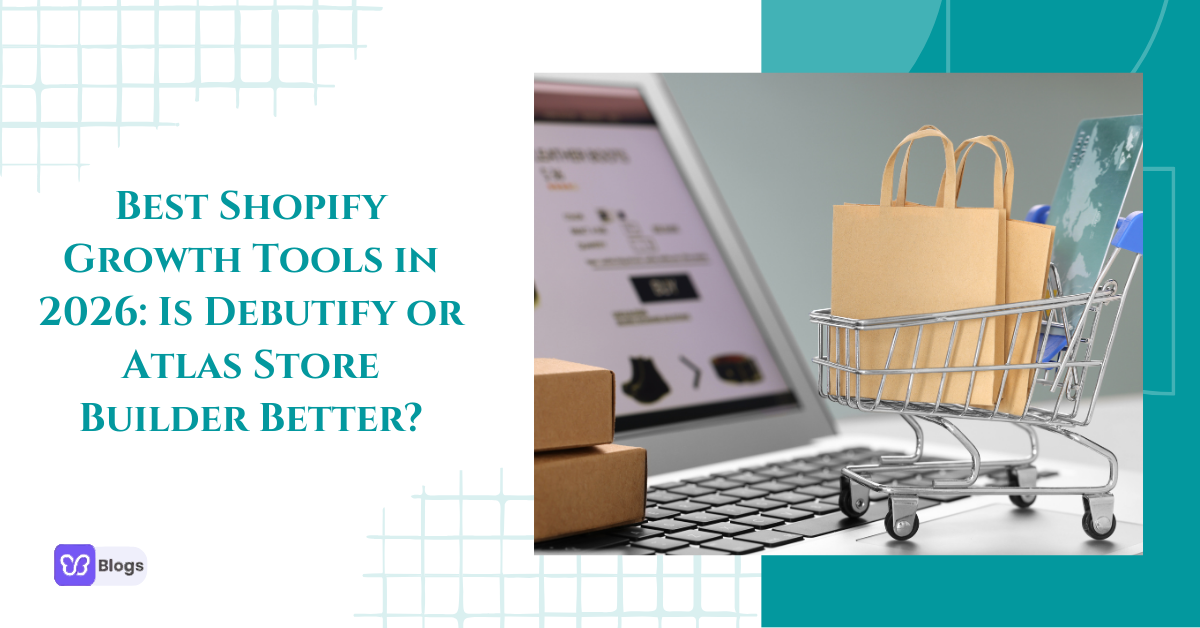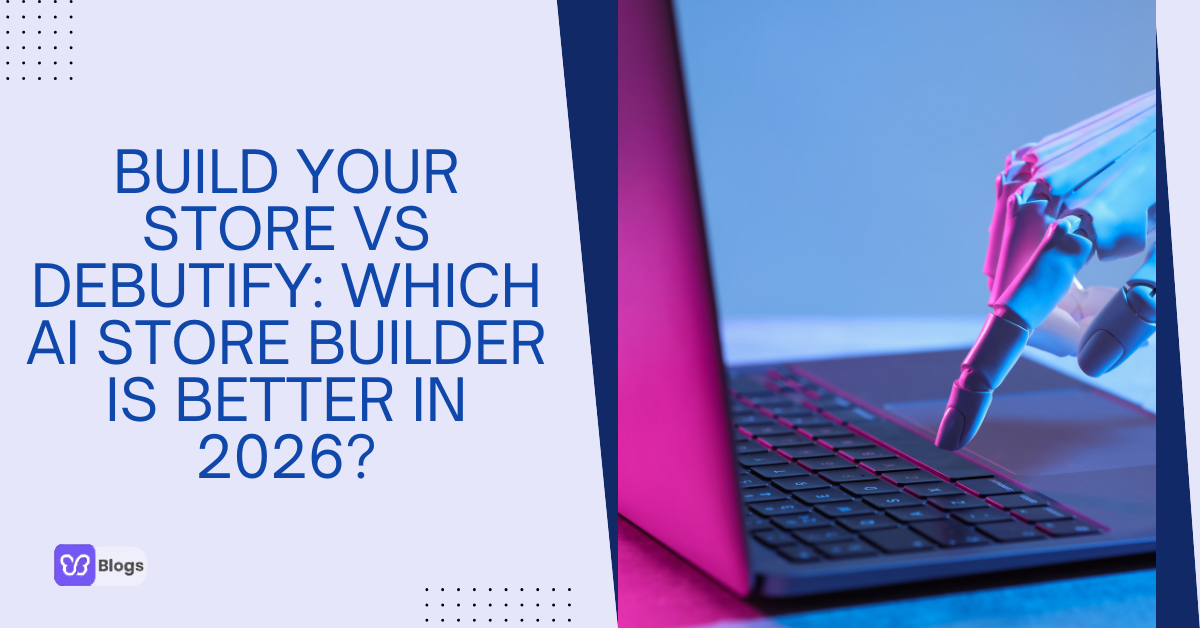Digital marketing has gained momentum in recent years as the world moves from analog to digital. Many brick-and-mortar businesses have shifted their business operations from physical stores to the virtual world.
People are consuming more content online, and establishing a robust online presence has become a priority of every business, whether offline or online.
There are no ifs and buts when we talk about digital marketing. If you want to grow your business in 2024, there is no other way except depending upon the best digital marketing practices.
Sadly, similar to anything else, there is no shortage of misconceptions and digital marketing myths in the world of ecommerce.
Needless to say, it makes it harder for new and established sellers to determine what works and what doesn't.
In this article, we're going to debunk the most common digital marketing myths in 2023 that hinder your path to success and limit your potential of making the most of your ecommerce journey.
What Is Digital Marketing And Why Is It Crucial For Your Online Business’s Success?
Digital marketing involves all digital channels that an online business can use to promote its products and services, including email, social media, influencer marketing, SEO, and more.
Why is it critical for your business? Because it helps you connect with your prospects and existing customers through multiple digital channels such as search engines, social media, email, and more. Unlike traditional marketing, you are not limited to just word-of-mouth.
When you have a physical store, people know its location, can personally visit it, talk with the owners or sales reps, touch the products, and even come back to return goods if they're not happy with their purchase.
But things aren't as easy when we talk about online selling.
You have to work hard to get your business noticed, make efforts to offer the user experience like physical stores, create robust returns and refund policy, and invest in customer support that is always there (just like a sales pro) to guide customers on every step.
To succeed in such a scenario could be a little challenging, especially if you're new to the online selling world. The worst that could happen at this point is hearing different opinions from people who're already part of the ecommerce world.
Why Debunking Common Digital Marketing Myths Is Important?
People have different opinions. Also, not all businesses are created alike. For instance, if you run an accessory or clothing store online, having Instagram and Influencer marketing strategies can do wonders for your brand.
Why? Because these are customer-centric channels that allow you to create brand awareness through popular yet simple tools like images, videos, and more.
But you can't choose to go with such channels when you have a high-ticket product to sell - an enterprise solution, for instance.
Then you'd probably look for mediums that allow you to reach out to professionals and people working in the same niche as yours. For example, you can consider leveraging LinkedIn or paid ads to access targeted audiences if your product is exclusive and expensive.
But before you even think about creating an ecommerce digital marketing strategy for your business, you should debunk the digital marketing myths first that hound the ecommerce industry.
Remember, these misconceptions, when left to progress on their own, turn into a disaster that impacts your opportunities and limits your growth over time.
No, we won't ask you to wait for someone to come and debunk those digital marketing myths for you, as we're going to do it here, right away, in this post for you. So, let's begin.
Top 7 Must-Know Digital Marketing Myths Debunked
1. SEO Is Dead
Considering search engine optimization dead is the silliest digital marketing myth. SEO is alive and more critical than ever before.
If your customers can't find you online, mostly through search engines, they'll eventually start exploring other options, and you won't get your fair market share even if you have the best products in the world.
There are more than 1.11 Billion websites, and each one of them is trying to make its way through the first page of Google. So, how can you get your website visible and noticed in this situation? Search Engine Optimization is your answer.
SEO enables you to increase your website's search engine visibility and reach out to people who're genuinely interested in your offers. Integrating search engine optimization strategies with digital marketing will allow you to drive organic traffic.
But yes, getting your SEO strategy right in 2024 isn't as easy as it may sound. Google is constantly updating its algorithm, and SEO today is far beyond a one-and-done process.
If you want to align your SEO efforts with Google's algorithm, you should make constant efforts to keep your site optimized as only then you'd be able to witness noticeable results.
In a nutshell, if you want your customers to see you online, you should work on an aggressive SEO strategy that outperforms your competitors and paves the way for your brand to get listed on the first page of Google.
2. Email Marketing Is Spammy And Useless
If you think (or someone told you) that email marketing is outdated and dead, then let us tell you it isn't.
Many successful online retailers still consider email the best marketing channel to reach out to potential and existing customers.
Sure, a poorly managed email campaign can cause more harm than good for your business. But that doesn't necessarily mean the channel itself is spammy and useless.
The key here is to create an effective email marketing strategy that converts.
Here are a few things you can do to make your email strategy work:
- First things first, invest your time and other resources in knowing who your ideal customers are. Conduct research to segment the market based on age, gender, location, buying preferences, and other psychological and behavioral factors
- Once you know your target audience, the next step is to know your goal. What do you want to achieve through your email campaign?
- It's also critical to invest in an automated email marketing solution like MailChimp or Keap to avoid repetition and streamline the entire process
- Spend time creating email copies that resonate well with your target customers. Create engaging subject lines, an attractive email copy, and action-driven CTAs to encourage customers to take your desired action
- Last but not least, split-test different versions of your emails to determine what works best for your business
3. Mobile Traffic Doesn’t Convert Well
Yes, you read that right. You're going to hear this digital marketing myth at some point in your ecommerce journey. But similar to any other digital marketing myth, this one makes no sense either.
We all know mobile users rule the online space in terms of traffic.
Sure, web users contribute more to your conversion funnel, but that's not because mobile users are unwilling to convert. But that’s because they find friction somewhere in your funnel that prevents them from making a purchase.
So instead of cursing users for not contributing to the process, it's critical to review your strategies first to see if they're mobile-friendly.
Below you will find some of the tactics you can implement right away to get the most of your mobile users:
Mobile responsiveness: Google research reveals that more than 70% of users abandon an ecommerce website if it takes longer to load. Having a mobile-responsive website is the MUST if you want your mobile customers to spend more time on your website
Simple mobile checkout process: Have you ever wondered why people prefer shopping through their mobiles? Because they find it difficult to open their laptops, enter sites, browse options, make payments, and wait for their products to arrive.
Obviously, you can't reduce the shipping time frame for them, but what you can do is offer them a simplified payment and checkout process they can use to complete their transactions within minutes!
4. You Don’t Need A Content Marketing Strategy
If you think having a well-designed website is enough to drive sales, then let us tell you the actual work begins just after building an appealing website.
Content marketing is an integral element of your digital marketing strategy, without which it would be tough for your brand to prove its identity and create awareness.
Creating high-quality, unique, and optimized content not only helps your brand rank higher on SERPs but also conveys a positive message to your audiences.
Again, there is every possibility that your content marketing efforts fail to provide you with your desired outcomes. And that happens when you have flaws in your strategy.
Here are a few things you can do to make your content strategy work:
- Set your goals
- Establish KPIs
- Know your customers
- Determine the best content channels
- Create a content calendar and follow it religiously
- Create premium content and optimize it using the best possible content optimization resources
- Do not limit yourself to your site only. Contribute guest posts to improve your credibility
- Measure results and tweak your strategy accordingly
Content marketing is one of those tasks that demand expert handling. So if you're unsure about your content writing or marketing skills, it is better to seek professional advice instead of risking your resources at stake.
5. Online Reviews Don’t Really Matter
We don't know where this digital marketing myth came from. But it's not true.
Your customers are your biggest asset, and the only thing they trust online is customer reviews shared by others. According to research, more than 93% of customers go through reviews before buying anything online.
Another research indicates that more than 50% of customers do not do business with a brand that has less than a 4-star rating on average.
Now, what does that mean for your business?
If you do not take your customers seriously, they're going to do the same with you. And you don't want your customers to take your business as a joke.
While it may be tempting to turn off the reviews feature to avoid negative comments, doing so will impact your brand credibility. So even if you have a few negative comments side-by-side with the positive ones, you're good to go.
Also, it will help you identify what customers think about your business.
Politely addressing the issue will not only help you win back an unhappy customer but also shows how much you care for your customers.
6. You Need To Use All Social Media Channels
You should target all social media channels is another digital marketing myth that can exhaust your resources.
While social media is powerful, you don't need to have profiles on every social media channel.
Conduct market research to determine where your target audience spends most of their time. Having multiple social media profiles means you have to create custom content for each of them and need a dedicated support team to answer queries on each platform.
7. Digital Marketing Is Too Expensive
Digital marketing can be exorbitantly pricey when you don't know what you're doing or working with the wrong agency.
You don't always have to outsource all your digital marketing tasks either. If there are things you know you can do better, you can handle them on your own. Also, you can save a lot by hiring freelancers on a per-project basis instead of handing over the entire project to a single agency.
Discuss your goals with your chosen agency upfront, and do not hesitate to switch options if you don't get the right value for money.
Here, it is also critical to understand that you can't get results overnight. So be patient, allocate your budget wisely, and get ready to see amazing results over time.




